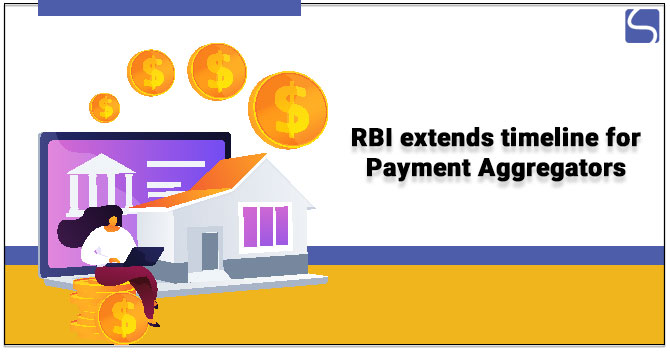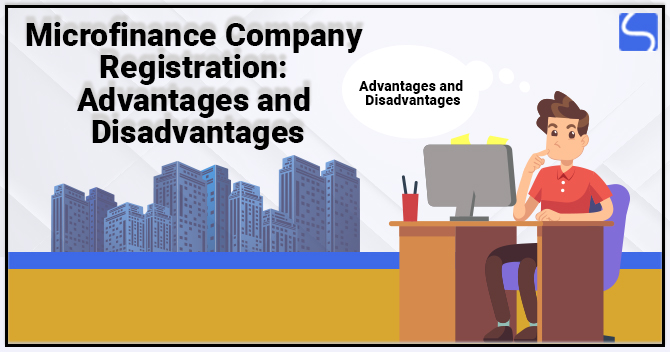RBI extends timeline for Payment Aggregators

Kandarp Vanita | Updated: Apr 23, 2021 | Category: RBI Advisory
Through its notification dated 31st March, the Reserve Bank of India has revised the guidelines on Regulation of Payment Gateways and Payment Aggregators in which the RBI as a one-time measure has decided to further extend the time for non-bank payment aggregators by six months, i.e., till the time period of December 31, 2021, to make possible the participants and the payment system providers to set up and create effective solutions within the framework such as tokenization. In this blog, we will know in details about the guidelines where RBI extends timeline for payment aggregators up to the period of 31st December, 2021.
Table of Contents
What is the need to regulate?
Behind the easy and quick digital transfer of money, there is a tough set of events. Payment aggregators (PA) are the backbone of these transactions as they act as intermediaries. These e-commerce sites and merchants accept payments from the customers through several payment modes for completing the payment obligations. These payment aggregators do away with the need to create their own separate payment integration system for the merchants. In this seamless system, the payment aggregators receive the payments from customers, and then they pool and transfer them to the merchants.
Earlier it was not required by the payment aggregators to acquire separate registration from RBI. After long discussion with the stakeholders, finally the Reserve Bank of India[1] (RBI) has brought the PAs direct under its regulatory ambit. There was this need to regulate the business and bring the payment aggregators under RBI as the PAs are involved in pooling the funds received from the customers, and then they used to undertake the settlement services with the merchant. Consequently, the PAs will now be under the direct regulation of the RBI with the objective to bring more security, accountability and transparency for the consumers. Due to this move by the RBI it will separate the wheat from chaff, leaving only serious players in the market.
What are the complete Guidelines of RBI?
The RBI circular applies to:
- The circular applies to online Payment Aggregators and Payment Gateways. The guidelines provide for the regulation of the activities of PAs that are online and also by providing baseline technology-related suggestions to Payment gateways.
- Authorization of RBI is not required in the case of bank PAs, and the bank PAs shall ensure that they are complying with the guidelines from September 30, 2020.
- For non-bank PAs, they are required to submit the application for authorization from RBI before the last date of June 30, 2021 and thereby the instructions shall come into force from the date of the authorization.
- The RBI guidelines also apply to the e-commerce market places which are undertaking the direct payment aggregation. Furthermore, the e-commerce marketplaces that are availing the services of a PA shall mandatorily be considered as the merchants.
- Exception: This circular shall not apply directly on the ‘Delivery vs. Payment’ transactions but it will consider and include such transactions where the advance payment is made but the deliveries of goods are made in a deferred manner.
The guidelines with respect to Authorisation, capital and net-worth
- The Banks that are maintaining the escrow accounts are not required to monitor the net-worth of the PA.
- For the existing non-bank PAs, there will be a requisite CA certificate of net worth, which will prove that the requirement of net worth is ensured as on date March 31, 2021 and the same shall be necessary to be submitted to RBI for authorization during the time of application. If there is any existing entity with the desire to apply before March 31, 2021 then such entity shall be required to submit a similar certificate as on the nearest half-year last date
- The non-bank entities that are newly incorporated and may not have their financial accounts audited statement shall be required to submit a certificate from their CA concerning the current net-worth together with the provisional balance sheet.
Governance related guidelines
The Promoters or its Groups shall conform to the RBI criteria of ‘fit and proper’. Hence, the Director of the PA company will be deemed as a “fit and proper” person if he is having a record of integrity and fairness, includes but not limited to:
- financial integrity;
- good reputation and character; and
- honesty;
Such person has not incurred any of the following disqualifications:
- Conviction by a court of any offence related to moral turpitude or any kind of economic offence or any other offence under the laws governed by the RBI;
- Insolvent declared and has not been discharged;
- An order, preventing, prohibiting, debarring or restraining the person from accessing or from dealing in any financial system that the regulatory authority has passed, and the period mentioned in the order has still not elapsed;
- The person is found to be unsound mind by the jurisdiction of a competent court and the findings are still in force; and
- The person is financially unsound.
- The RBI’s discretion shall prevail and be final in case on any question as to whether a person is a fit and proper person,
Conclusion
The RBI considering the post-COVID-19 situation has helped keep the economic engine moving as the reliance and dependence on payment aggregators and payment gateways have significantly increased. Thus, for promoting accountability and security for the PA’s, the transition should be made seamless as possible.
Also, Read: RBI Introduced (Digital Payment Security Controls) Directions 2021














